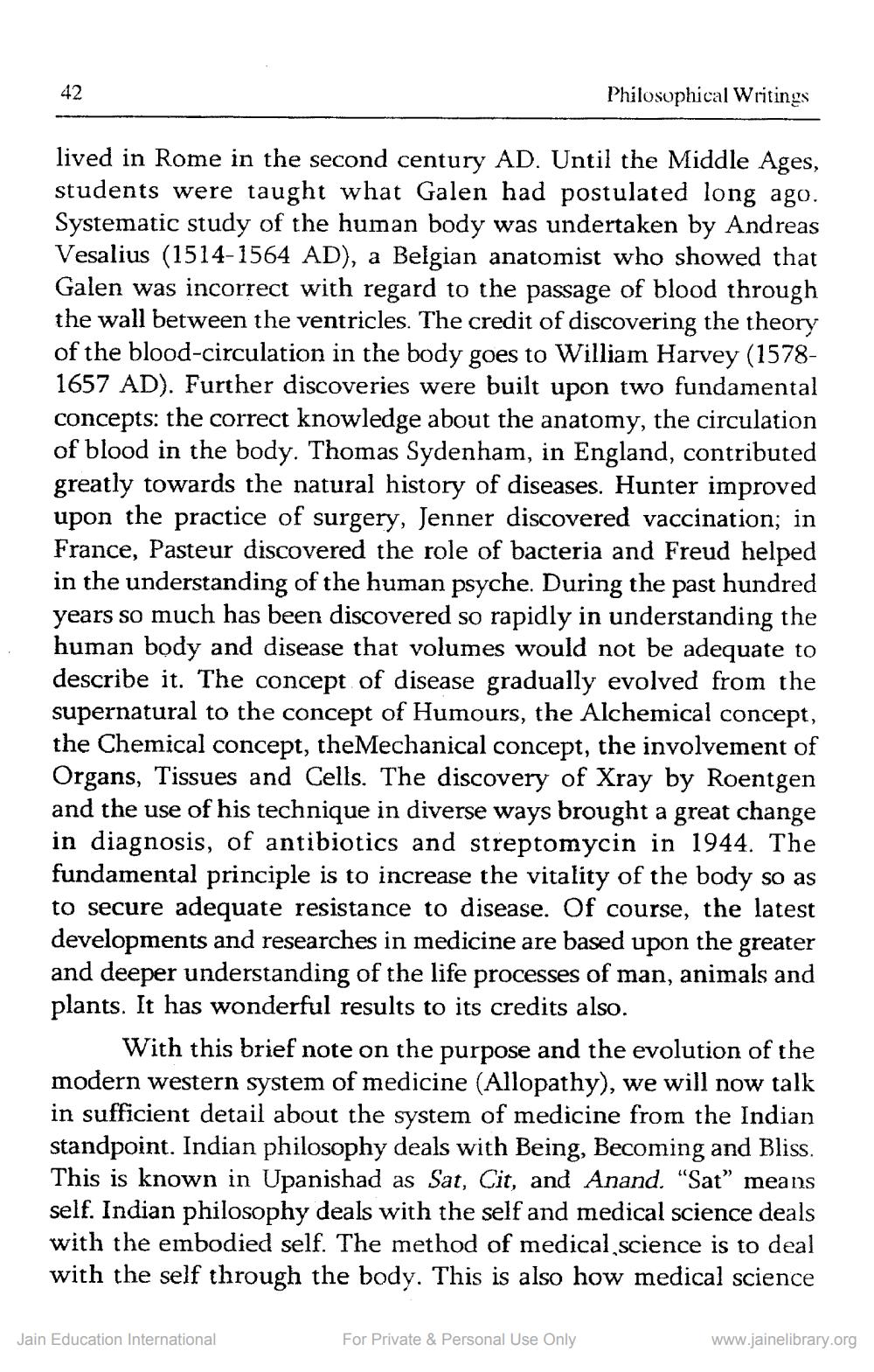________________
42
Philosophical Writings
lived in Rome in the second century AD. Until the Middle Ages, students were taught what Galen had postulated long ago. Systematic study of the human body was undertaken by Andreas Vesalius (1514-1564 AD), a Belgian anatomist who showed that Galen was incorrect with regard to the passage of blood through the wall between the ventricles. The credit of discovering the theory of the blood-circulation in the body goes to William Harvey (15781657 AD). Further discoveries were built upon two fundamental concepts: the correct knowledge about the anatomy, the circulation of blood in the body. Thomas Sydenham, in England, contributed greatly towards the natural history of diseases. Hunter improved upon the practice of surgery, Jenner discovered vaccination; in France, Pasteur discovered the role of bacteria and Freud helped in the understanding of the human psyche. During the past hundred years so much has been discovered so rapidly in understanding the human body and disease that volumes would not be adequate to describe it. The concept of disease gradually evolved from the supernatural to the concept of Humours, the Alchemical concept, the Chemical concept, the Mechanical concept, the involvement of Organs, Tissues and Cells. The discovery of Xray by Roentgen and the use of his technique in diverse ways brought a great change in diagnosis, of antibiotics and streptomycin in 1944. The fundamental principle is to increase the vitality of the body so as to secure adequate resistance to disease. Of course, the latest developments and researches in medicine are based upon the greater and deeper understanding of the life processes of man, animals and plants. It has wonderful results to its credits also.
With this brief note on the purpose and the evolution of the modern western system of medicine (Allopathy), we will now talk in sufficient detail about the system of medicine from the Indian standpoint. Indian philosophy deals with Being, Becoming and Bliss. This is known in Upanishad as Sat, Cit, and Anand. “Sat” means self. Indian philosophy deals with the self and medical science deals with the embodied self. The method of medical science is to deal with the self through the body. This is also how medical science
Jain Education International
For Private & Personal Use Only
www.jainelibrary.org




